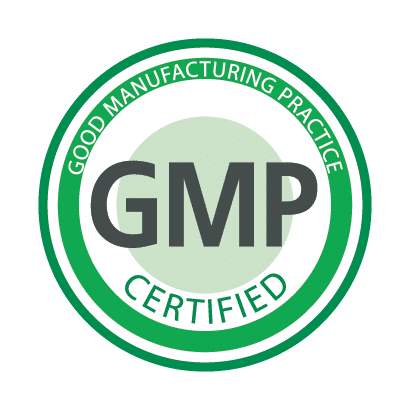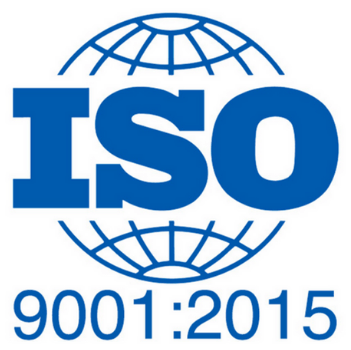Eculizumab Biosimilar - Research Grade
Bulk Eculizumab Biosimilar - Research Grade
| Product Specific Citations |
SARS-CoV-2 triggers complement activation through interactions with heparan sulfate Lo et al. SARS-CoV-2 Triggers Complement Activation through Interactions with Heparan Sulfate. bioRxiv (2022).
|
|---|---|
| Species Reactivity | Human |
| Target | Complement protein C5 |
| Concentration | 1.0 - 5.0 mg/ml |
| Isotype | IgG2/4 kappa |
| Host | Humanized |
| Use | Products are for research use only. Not for use in diagnostic or therapeutic procedures. |
| Storage | Stable for at least one week when stored sterile at 2-8°C. For long term storage aseptically aliquot in working volumes without diluting and store at ï؟½80°C. Avoid Repeated Freeze Thaw Cycles. |
| Endotoxin | ≤ 1.0 EU/mg as determined by the LAL method |
| Purity | >95% by SDS-PAGE and HPLC |
| Formulation | Phosphate buffered saline (PBS) pH 7.2,with no carrier protein, potassium or preservatives added. BSA and Azide free. |
| Purification Method | This monoclonal antibody was purified using multi-step affinity chromatography methods such as Protein A or G depending on the species and isotype. |
| Specificity | Detects human Complement protein C5. This non-therapeutic antibody uses the same sequence as the therapeutic antibody Eculizumab. |
| Shipping Conditions | Blue ice |
| background | Eculizumab biosimilar is a recombinant humanized monoclonal IgG2/4_ antibody produced by Chinese hamster ovary cell culture and purified by standard bioprocess technology. Eculizumab biosimilar contains human constant regions from human IgG2 sequences and |
| Other names | C5 |
| UniProt | P01031 |
| Buffer | ICH3001-100ml ICH3002-100ml ICH3003-100ml |
| Sequence | https://www.imgt.org/mAb-DB/ |
Product Benefits:
ichorbio's Eculizumab Biosimilar - Research Grade is manufactured in a cGMP compliant facility. Our eculizumab biosimilar is strictly for research use only (RUO).
Size:
ichorbio's research grade eculizumab biosimilar is available in the following sizes: 5mg, 10mg, 20mg, 50mg, 100mg ichorbio regularly manufactures bulk multi-gram amounts of our eculizumab biosimilar - please contact us for pricing.
Recent Research into Eculizumab:
Eculizumab is a recombinant humanized monoclonal antibody directed against the complement protein C5. The complement system pathways are the first line of defense against infectious threats. Their activation plays a critical role in innate and adaptive immune responses. Unfortunately, deregulations within the system have been shown to drive severe immune and inflammatory disorders. Eculizumab obtained the orphan drug status in 2003 and was approved in 2007 as the first drug targeting the complement system. It is now used for the treatment of paroxysmal nocturnal hemoglobinuria (PNH), atypical hemolytic uremic syndrome (aHUS), and refractory generalized myasthenia gravis (gMG). Here are some examples of eculizumab’s latest research. In February 2020, Vo et al. published the results of a pilot trial investigating the benefit of eculizumab for patients who received sustained transfusions and developed human leukocyte antigen (HLA) alloimmunization with severe thrombocytopenia. According to previous data, activation of the complement system plays a critical role in the destruction of platelets bound by HLA alloantibodies and may lead to platelet refractoriness. In this study, the authors suggested that eculizumab, with its ability to bind and inhibit the C5 complement, could be beneficial for such patients. The trial included 10 patients who received a single infusion of eculizumab. Interestingly, the four patients who responded well to the treatment showed higher post-transfusion platelet increments even 14 days after treatment. This study stands now as proof of principle for a larger scale trial evaluating the potential benefit of eculizumab for the treatment of platelet transfusion refractoriness. At around the same time, another study focused on complement-mediated disorders associated with poor outcomes such as C3 glomerulopathies (C3G) and primary immune complex-mediated membranoproliferative glomerulonephritis (IC-MPGN). A total of 10 patients were treated with eculizumab in two 48-week treatment stages separated by a washout period of 12 weeks. Three patients achieved proteinuria remission associated with kidney function stabilization. The authors also observed an eculizumab-mediated decrease of microangiopathy that was associated with better clinical outcomes for patients with IC-MPGN. Thrombotic microangiopathy (TA-TMA), caused by an overactivated complement system, is also associated with poor outcomes for hematopoietic stem cell transplant (HSCT) recipients. In January 2020, Jodele et al. published a study including 64 pediatric HSCT recipients with a high risk of developing TA-TMA and multi-organ injury. Patients treated with eculizumab showed significant survival rate improvement (66%) one year after transplant compared to an untreated cohort sharing the same characteristics (16.7%). During the treatment process, the authors found that the number of eculizumab doses had to be adapted to the level of therapeutic response of each patient. Patients with higher levels of complement activation as well as intestinal bleeding had a lower response to treatment, required more doses of eculizumab, and their one-year survival was lower (44% vs 78%, p=0.01). The study concluded that the inhibition of an overactivated complement with eculizumab could be an effective strategy for most pediatric HSCT patients with high-risk TA-TMA. However, it is still critical to find other early treatment options for patients with the most severe cases of disease.
Keywords: C5 complement, eculizumab, immune disorders, thrombotic microangiopathy.
References: Carrara C, Podestà MA, Abbate M, Rizzo P, Piras R, Alberti M, Daina E, Ruggenenti P, Remuzzi G1; on behalf of the EAGLE Study Group. (2020). Morphofunctional Effects of C5 Convertase Blockade in Immune Complex-Mediated Membranoproliferative Glomerulonephritis: Report of Two Cases with Evidence of Terminal Complement Activation. Nephron. 2020 Feb 12:1-9.
Jodele S1, Dandoy CE2, Lane A1, Laskin BL3, Teusink-Cross A4, Myers KC2, Wallace GH2, Nelson A2, Bleesing J2, Chima RS2, Hirsch R2, Ryan TD2, Benoit SW2, Mizuno K5, Warren M6, Davies SM1. (2020). Complement blockade for TA-TMA: lessons learned from large pediatric cohort treated with eculizumab. Blood. 2020 Jan 13. pii: blood.2019004218.
Kioa Lente Wijnsma, Rob ter Heine, Dirk Jan A. R. Moes, Saskia Langemeijer, Saskia E. M. Schols, Elena. B. Volokhina, Lambertus P. van den Heuvel, Jack F. M. Wetzels, Nicole C. A. J. van de Kar & Roger J. Brüggemann. (2019). Pharmacology, Pharmacokinetics and Pharmacodynamics of Eculizumab, and Possibilities for an Individualized Approach to Eculizumab. Clinical Pharmacokinetics volume 58, pages 859–874 (2019)
Vo P, Purev E, West KA, McDuffee E, Worthy T, Cook L, Hawks G, Wells B, Shalabi R, Flegel WA, Adams SD, Reger R, Aue G, Tian X, Childs R. (2020). A pilot trial of complement inhibition using eculizumab to overcome platelet transfusion refractoriness in human leukocyte antigen allo-immunized patients. Br J Haematol. 2020 Feb 21.



















